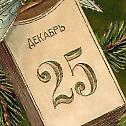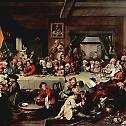Science
Saint Mark the Archbishop of Ephesus
1. February 2016 - 11:52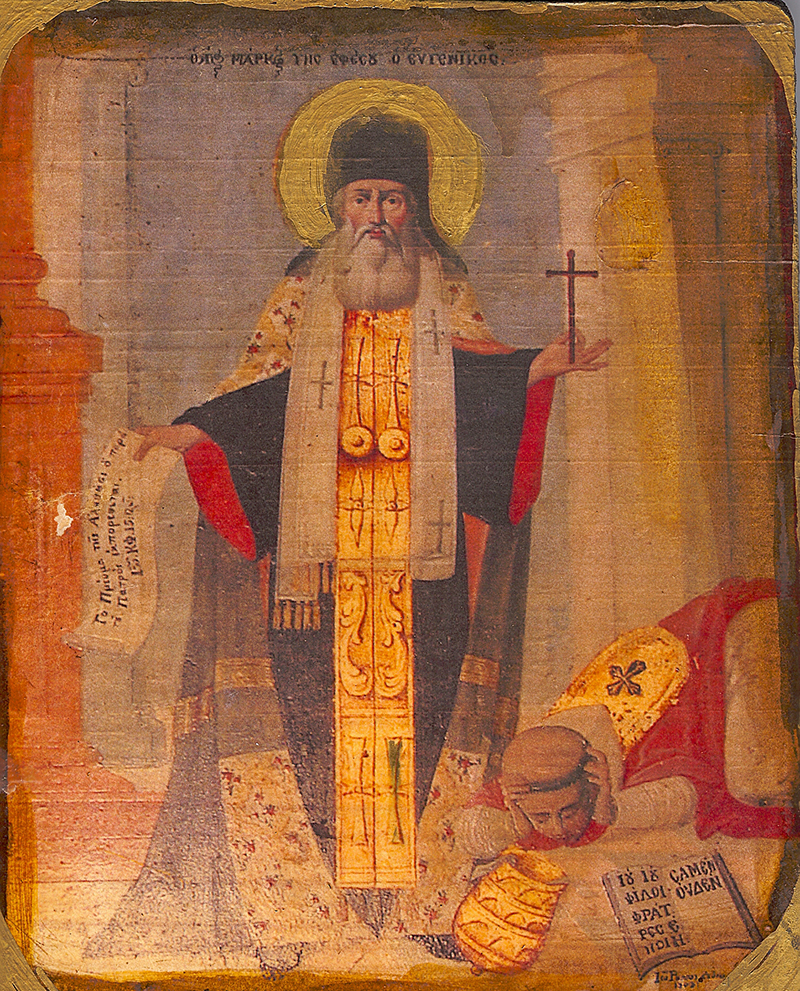 Saint Mark of Ephesus is one of the Patron Saints of Orthodoxy Cognate PAGE – Pan-Orthodox Christian Society Movement.
Saint Mark of Ephesus is one of the Patron Saints of Orthodoxy Cognate PAGE – Pan-Orthodox Christian Society Movement.
Commemorated on January 19
St. Mark (nee Emmanuel) was born of pious parents in 1392 in the queen of cities, Constantinople. His father was called George and was the Chief Justice of Sakellion and deacon of the Great Church, his mother was Maria, the daughter of the pious doctor Luka.
Both parents tried and succeeded in raising little Emmanuel in teaching and upbringing in the Lord. But the death of their father left him and his younger brother John orphans at a tender age.
'The Earth Cannot Imprison Him'—St. Sava of Serbia
28. January 2016 - 9:54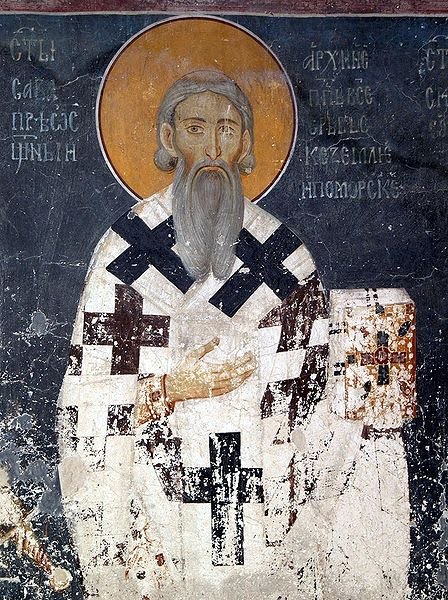 Today, January 14 on the Serbian Church’s calendar[1] we celebrate the memory of the Holy Hierarch Sava (1176-1235), ‘Venerable Holy Father and First Archbishop and Eternal Enlightener of the Serbs’[2] and ‘the greatest of Serbian national saints’.[3] Fr. Daniel Rogich calls him ‘the most beloved of all Serbian Orthodox saints, considered by all Serbs everywhere and at all times as the ultimate expression and example of what it means to be fully human, that is, what it means to be a devout and committed follower of Jesus Christ.’[4] Sir Dimitri Obolensky has said of St. Sava:
Today, January 14 on the Serbian Church’s calendar[1] we celebrate the memory of the Holy Hierarch Sava (1176-1235), ‘Venerable Holy Father and First Archbishop and Eternal Enlightener of the Serbs’[2] and ‘the greatest of Serbian national saints’.[3] Fr. Daniel Rogich calls him ‘the most beloved of all Serbian Orthodox saints, considered by all Serbs everywhere and at all times as the ultimate expression and example of what it means to be fully human, that is, what it means to be a devout and committed follower of Jesus Christ.’[4] Sir Dimitri Obolensky has said of St. Sava:
The historian who attempts to write the life of this central figure in Serbia’s medieval history may well feel apprehensive at the sheer range of Sava’s activities. He will be discouraged by his many guises: successively a provincial governor, an Athonite monk, and an archbishop; a diplomat entrusted with delicate missions by his brother the king; a founder of several monasteries and the organizer of their liturgical life and discipline; a legislator in the field of canon law; the first primate of Serbia’s autonomous Church; a voyager on the pilgrim-routes of the eastern Mediterranean; his country’s earliest articulate writer; the focus of a posthumous cult that spread throughout the Balkan peninsula and even captured some of its Muslim population later on; Serbia’s unrivalled patron saint; a semi-legendary figure right down to the present day, celebrated in folklore, poetry, and song; his mythopoeic sway must be unique in eastern Europe; and all this, and a wider compass still, are there to daunt his biographer.[5]
Discourse on the day of the Baptism of Christ
19. January 2016 - 15:55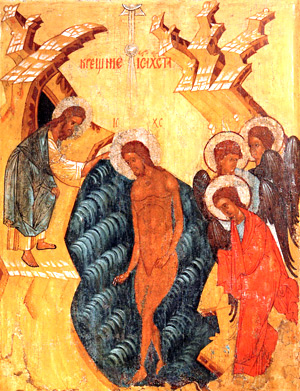 We shall now say something about the present feast. Many celebrate the feastdays and know their designations, but the cause for which they were established they know not. Thus concerning this, that the present feast is called Theophany—everyone knows; but what this is—Theophany, and whether it be one thing or another, they know not. And this is shameful—every year to celebrate the feastday and not know its reason.
We shall now say something about the present feast. Many celebrate the feastdays and know their designations, but the cause for which they were established they know not. Thus concerning this, that the present feast is called Theophany—everyone knows; but what this is—Theophany, and whether it be one thing or another, they know not. And this is shameful—every year to celebrate the feastday and not know its reason.
First of all therefore, it is necessary to say that there is not one Theophany, but two: the one actual, which already has occurred, and the second in future, which will happen with glory at the end of the world. About this one and about the other you will hear today from Paul, who in conversing with Titus, speaks thus about the present: The grace of God hath revealed itself, having saved all mankind, decreeing, that we reject iniquity and worldly desires, and dwell in the present age in prudence and in righteousness and piety—and about the future: Awaiting the blessed hope and glorious appearance of our great God and Saviour Jesus Christ (Tit 2:11-13). And a prophet speaks thus about this latter: The sun shalt turn to darkness, and the moon to blood at first, then shalt come the great and illuminating Day of the Lord (Joel 2:31).
Sermon by St John (Maximovich) on St Seraphim of Sarov
18. January 2016 - 13:18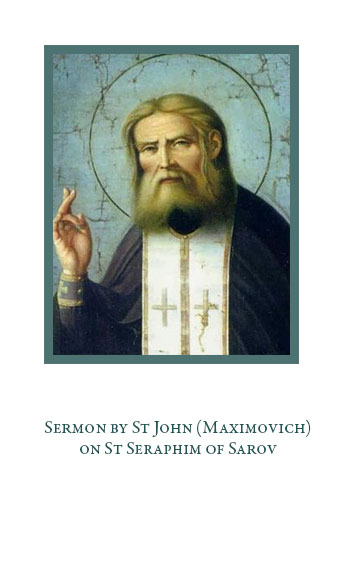 In the name of the Father, the Son, and the Holy Spirit!
In the name of the Father, the Son, and the Holy Spirit!
“They will sing Pascha in the summer,” they once said in Sarov. Seventy years passed from the death of the man about whom these words were pronounced, and on July 19, 1903, all of Rus’ resounded with hymns of praise, glorifying God and His saint. Truly, all of Rus’ exalted then as on the Day of Holy Pascha-even more so.
Terrible days were to come for Russia, but the memory of St Seraphim neither died nor weakened. Russian people continue to appeal to him and glorify him, both in the suffering Homeland and throughout the ends of the world where they are scattered. Even other nations are becoming familiar with St Seraphim; his Life (biography) is being translated into various languages, evoking not only admiration, but also, in many, the striving to apply in their own lives the lessons given to us by his life. Thus, despite the changes that have taken place in the world, the memory of St Seraphim not only does not fade, but it remains a lamp that shines ever brighter to humanity.
Weekly Diocesan Bulletin - Sunday, January 17, 2016
15. January 2016 - 12:0133rd Sunday after Pentecost: Sunday before Theophany; Synaxis of the Seventy Apostles; Saint Eustasius I, Archbishop of Serbia
RESURRECTIONAL TROPARION - TONE EIGHT:
You descended from on high, O Merciful One! You accepted the three day burial to free us from our sufferings! O Lord, our Life and Resurrection: Glory to You!
On the Julian calendar, church tradition, and standing for the Faith
10. January 2016 - 13:45Christmas and New Year is a time when many Orthodox Christians who follow the Julian (old) calendar wonder why they do so; or rather, those who follow the Gregorian (new) calendar wonder why the old calendar Churches don’t want to change. Here is another thorough look at this question, from a number of angles.
* * *
Lately the question often arises: Why does the Russian Orthodox Church live by the Julian calendar when the whole world and the majority of Orthodox Local Churches have long since changed to the Gregorian calendar? And really, why? How cogent are the arguments against the old calendar? How is the calendar connected with our Christian spiritual life, and what is the significance of preserving our traditions in the modern world? Historian Pavel Kuznekov talks with our readers on this subject.


